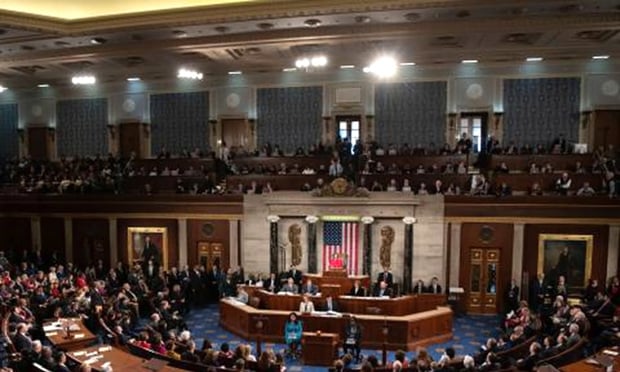 U.S. House of Representatives. Courtesy photo
U.S. House of Representatives. Courtesy photo
The Defense Credit Union Council (DCUC) and America's Credit Unions praised the U.S. House of Representatives for its narrow 217-211 vote to pass a resolution repealing the CFPB’s controversial overdraft rule. The resolution, S.J. Res. 18, championed by Sen. Tim Scott (R-S.C.), previously passed the Senate by a 52-48 margin and now heads to the White House.
The CFPB rule, finalized in December 2024, applied only to financial institutions with assets exceeding $10 billion and required them to either cap most overdraft fees at $5 or classify overdraft programs as credit under the Truth in Lending Act (TILA). Credit union advocates argued this would create significant compliance burdens and drive up costs.
Recommended For You
DCUC has consistently opposed the rule. “Reclassifying overdraft protection as a credit product under TILA would require costly system overhauls, additional disclosures and extensive compliance measures, despite members having already opted in with an understanding of the terms,” DCUC said in a prepared statement.
The rule’s repeal was seen as a win for credit unions concerned about overregulation and its potential to harm member services. “We are grateful for Senator Scott’s leadership in protecting consumers, restoring regulatory balance and preserving access to fair, flexible financial services,” Anthony Hernandez, DCUC's president/CEO, said. “DCUC remains steadfast in advocating for the financial well-being of service members, veterans and their families.”
President/CEO of America's Credit Unions, Jim Nussle said, "America's Credit Unions supports using all tools available to pull back any overreach of the CFPB's statutory authority. The bureau's overdraft rule is a solution in search of a problem, an attempt to eliminate a product deemed 'unsuitable' by Washington bureaucrats but vital to many credit unions’ members."
On the other side of the issue, officials with the consumer justice group the National Consumer Law Center (NCLC) voiced their opposition to the passage of the resolution.
“Republicans in Congress had a chance to put $5 billion back in the pockets of working people, including servicemembers, by dramatically cutting big bank overdraft fees. Instead, they sided with Wells Fargo, Chase and Navy Federal Credit Union, allowing them to use abusive overdraft fees to pad their profit margins,” Lauren Saunders, associate director of the NCLC, said. “With tariffs and a looming recession threatening to push prices higher and squeeze wages, voters need the relief they were promised on the campaign trail, not a Congress that works for banks and their shareholders.”
Kendall Garrison, CEO of the Austin, Texas-based Amplify Credit Union, voiced his thoughts after Wednesday's legislative action and proposed that credit unions need to rethink their reliance on overdraft fees.
“There’s a long-standing belief in the industry that capping overdraft fees makes it harder for financial institutions to provide meaningful protection. But that doesn’t have to be true. Since 2022, Amplify Credit Union has charged zero bank fees – overdraft or otherwise – to our members while also offering complimentary overdraft protection services. We’re proof that financial institutions can choose to build systems that support people through short-term financial gaps without relying on fees. Now is the time for more institutions to rethink their dependence on overdraft fees and focus on putting people first.”
© Touchpoint Markets, All Rights Reserved. Request academic re-use from www.copyright.com. All other uses, submit a request to [email protected]. For more inforrmation visit Asset & Logo Licensing.







